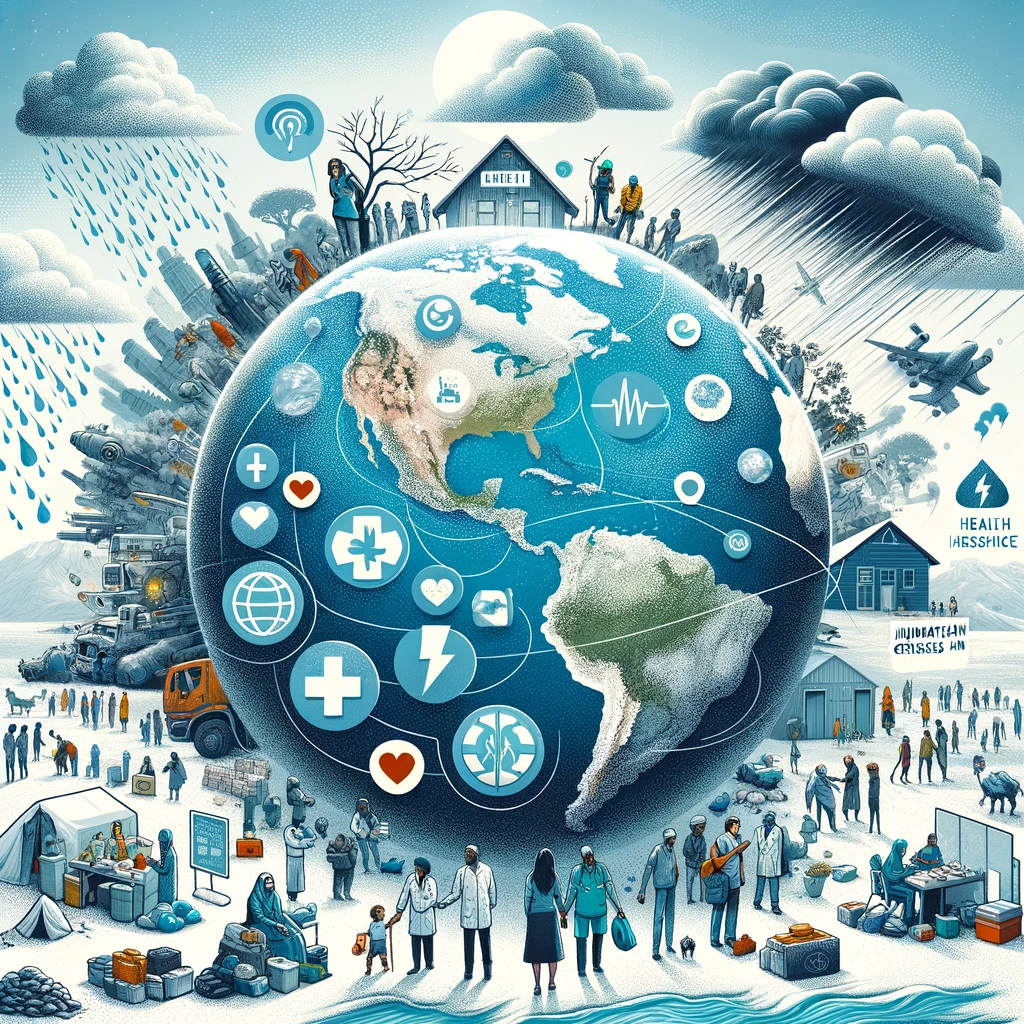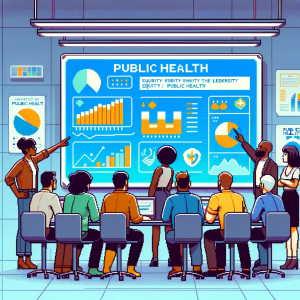
Climate Change and Its Impact on Health in Humanitarian Settings
Climate change, a challenge of our times, is not just about rising temperatures and extreme weather; it’s increasingly becoming a humanitarian and health crisis. The article Impacts of climate change on human health in humanitarian settings: Evidence gaps and future research needs provides a critical exploration of this issue.
Climate Change: A Burden on Human Health
The crux of McIver et al.’s study lies in understanding how climate change exacerbates health problems, particularly in vulnerable populations. The article references the IPCC’s Sixth Assessment Report (AR6), emphasizing the severe, widespread, and generally underestimated impacts of climate change on health. This includes an increase in vector-borne diseases, food and waterborne diseases, heat stress, and more. Importantly, the study reveals a gap in literature and understanding regarding those suffering in humanitarian crises – people deeply affected by poverty, conflict, epidemics, and natural disasters.
The Disproportionate Impact on Vulnerable Populations
One of the poignant takeaways from the study is the unequal burden of climate-induced health problems. Those at the extremes of age, living in poverty, with pre-existing conditions, and in geographically vulnerable areas bear a disproportionate share of the burden. Intriguingly, these populations contribute least to climate change, making this a stark issue of injustice.
Bridging the Knowledge Gap
A significant part of the study involves identifying gaps in the current literature, especially concerning populations in humanitarian settings. This gap exists due to the scarcity of research specific to these groups and the tendency of existing literature to focus more on issues relevant to high-income countries.
Médecins Sans Frontières (MSF) – A Unique Perspective
The study, presented from the perspective of MSF, highlights their vast experience in providing medical care in challenging contexts. This unique viewpoint sheds light on the health issues faced in humanitarian settings and the need for targeted research and adaptation strategies.
Study Methodologies: Literature Review and Survey
McIver et al. employed two main methods: a narrative literature review focused on climate-sensitive diseases (CSDs) and a survey of MSF headquarters staff. The survey aimed to gauge the frequency and severity of various CSDs in humanitarian settings, revealing significant knowledge gaps within the humanitarian community itself.
Key Findings and Discussions
The study identifies CSDs either mentioned in the IPCC AR6 or overlooked. The survey results indicate that some CSDs are less known or considered less relevant by MSF staff, highlighting an area for further training and awareness. The study emphasizes the need for more research on the health impacts of climate change in humanitarian settings and for the development of effective adaptation strategies.
A Call to Action: Research, Advocacy, and Adaptation
McIver et al.’s research is a call to action for the scientific community, policymakers, and humanitarian organizations. It stresses the need to fill these knowledge gaps through collaborative research and to develop adaptation strategies that are both evidence-based and context-specific.
The Way Forward: Integrating Voices and Evidence
The study concludes with an appeal to include the voices and experiences of those in humanitarian settings in future IPCC reports and global policy agendas. This inclusivity is crucial for creating effective climate policies that address the needs of the most vulnerable.
Conclusion
The article “Impacts of climate change on human health in humanitarian settings: Evidence gaps and future research needs” is a stark reminder of the interconnectedness of climate change, health, and humanitarian crises. It urges a collective effort in research, policy-making, and practical adaptation strategies to mitigate the health impacts of climate change, especially on the most vulnerable populations.
Empower Your Public Health Journey – Subscribe and Transform!
Unlock the transformative power of knowledge with ‘This Week in Public Health.’ Each issue is a treasure trove of insights into crucial research, community health achievements, and advocacy strategies. Don’t just read about change – be the agent of it. Subscribe for free and start making an impact with each edition!



